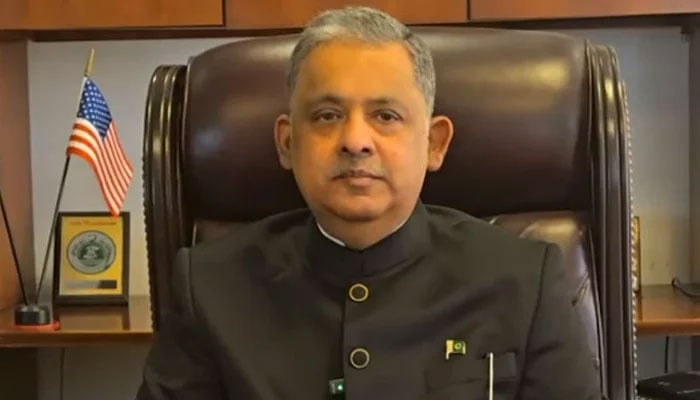WASHINGTON: Pakistan’s Ambassador to the United States, Rizwan Saeed Sheikh, underscored the importance of a strategic reset in Pakistan-U.S. relations, calling the partnership “indispensable” during a panel discussion on “The Future of the U.S.-Pakistan Relationship” at the Future Security Forum 2025 in Washington, D.C.
“Between the two mega countries of today and tomorrow — from both a present and futuristic perspective — good relations are not a matter of choice or preference; they are indispensable,” said Ambassador Sheikh.
The 11th Annual Future Security Forum, co-hosted by Arizona State University and New America in collaboration with Security & Defence PLuS, convened senior policymakers, defense experts, and global thought leaders to explore emerging security challenges.
Ambassador Sheikh highlighted the depth and continuity of Pakistan-U.S. cooperation, emphasizing shared priorities in counterterrorism, climate change, and regional stability. He also expressed appreciation to U.S. leadership, particularly President Donald Trump, for facilitating the ceasefire that ended the recent 88-hour standoff, describing it as “a vital act that prevented escalation in a nuclear neighborhood of 1.7 billion people.”
Addressing Pakistan’s climate vulnerability, the Ambassador said climate change was not an abstract issue but an existential threat. He described recurring floods, cloudbursts, and “compounding, sequential climate disasters” that have devastated communities and infrastructure, noting that “what we build every few years is washed away by floods, but we still must pay back what we borrowed to rebuild.”
He emphasized that Pakistan’s diplomacy is increasingly aligned with its climate and economic policies, reflecting a pragmatic approach to national resilience and development.
Reiterating Pakistan’s principled position on Indian Illegally Occupied Jammu and Kashmir (IIOJK), Ambassador Sheikh called for renewed international mediation in accordance with UN Security Council resolutions, asserting that peace in South Asia hinges on the resolution of this longstanding issue.
Rejecting the notion of “camp politics,” he said Pakistan seeks balanced relations with global powers. “There is no binary choice for us. Our relationship with China didn’t start yesterday, and it is not ending tomorrow,” he remarked, adding that the China-Pakistan Economic Corridor (CPEC) should be viewed as an engine for regional connectivity and prosperity.
Ambassador Sheikh also recalled Pakistan’s historical role in fostering rapprochement between the United States and China, expressing Islamabad’s readiness to once again serve as a bridge for global peace and economic cooperation.
Condemning cross-border terrorism from Afghanistan, the Ambassador reaffirmed that while Pakistan will continue to confront terrorism decisively, diplomacy remains the country’s preferred approach to resolving disputes with both Afghanistan and India.
On the issue of Afghan refugees, he clarified that Pakistan’s repatriation efforts only target undocumented individuals, ensuring that returns are conducted “in a dignified manner,” and emphasizing the need for visa-based movement across the Pak-Afghan border in line with international norms.
Discussing the Ukraine conflict, Ambassador Sheikh welcomed peace initiatives led by President Trump, expressing hope for their success and for a swift restoration of global stability.
Concluding his remarks, Ambassador Sheikh thanked the organizers and engaged with participants in a dynamic Q&A session, reaffirming Pakistan’s steadfast commitment to diplomacy, dialogue, and mutual respect as foundations for international peace and cooperation.


Comments are closed.